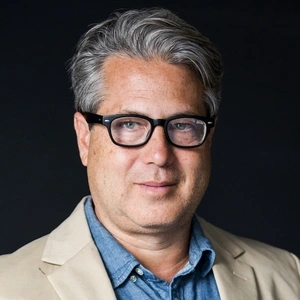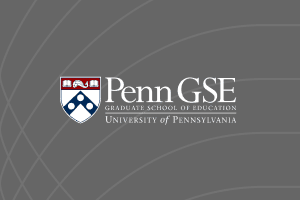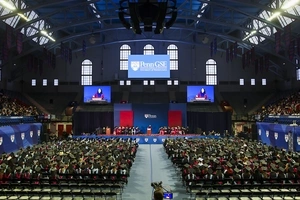Faculty Expert
When it came time to publish her first book, Penn GSE Senior Fellow Kandi Wiens looked inward for inspiration. After a health scare, Wiens reevaluated a stressful consulting career and pivoted to research and coaching on emotional intelligence, burnout, and resiliency. She created a framework to help herself and others reduce stress and improve coping skills.
To help others avoid burnout and promote a healthy relationship with work, Wiens developed her ARMOR strategy, which is short for awareness, regulation, meaningful connections, outlook, and three Rs: recover, reconnect, and reimagine. That laid the foundation for her new book, Burnout Immunity: How Emotional Intelligence Can Help You Build Resilience and Heal Your Relationship with Work, set to publish April 23.
The book guides readers through Wiens’ research, stories from her participants, and her personal experiences with emotional intelligence (EI) and burnout. Each chapter offers resources to help individuals build their skills.
“I wanted to offer rich, impactful questions and exercises,” said Wiens.
Pioneered by psychologist Dr. Daniel Goleman, Wiens explains that EI is recognizing your feelings and those of others, as well as self-motivation and coping skills for your emotions and relationships.
Research indicates people with high EI can process and respond to stressful situations and combat burnout. Wiens said readers could build their EI through awareness, work, and reflection.
Wiens recommends professionals regularly evaluate their work-life balance and prioritize physical, mental, and emotional wellness to avoid burnout. She encourages professionals to practice “frequent recovery,” such as a daily walk, weekends away, or vacations.
“It’s important to be mindful that something is good for you and make it part of your habits,” she said.
Wiens said that building EI is an ongoing process, and she continues honing her skills.
“I use every element of ARMOR every time I think of navigating a stressful situation,” Wiens said. “It’s like a muscle you’re constantly trying to develop. It’s lifelong work.”
Methods for Community-Based Research: Advancing Educational Justice and Epistemic Rights
After more than a decade of working with Philadelphia community members on collaborative research, Penn GSE Professor Gerald Campano and co-author Maria Paula Ghiso, a Penn GSE alum, want to help fellow researchers, academics, and community leaders grow the practice.
In their new book, Methods for Community-Based Research: Advancing Educational Justice and Epistemic Rights, publishing April 23 by Taylor & Francis, Campano and Ghiso advocate for university researchers to partner with local leaders, families, activists, and other stakeholders to design and conduct research on matters that impact their communities, including educational access and equity.
The goal “is about raising methodological issues for people to grapple with in their form of scholarship and practice,” Campano said.
The publication is inspired by Penn GSE’s Communities Advancing Research in Education (CARE) Initiative, led by Campano and Ghiso, a professor of literacy education at Columbia University’s Teachers College. The program works to create partnerships between Penn researchers, doctoral students, and local community members.
CARE started 12 years ago when Campano and Ghiso joined members of a South Philadelphia Catholic parish that includes families of Latino, Indonesian, and Mexican descent to tackle issues on race and education. Through collaborative research, they’ve investigated critical educational topics, including the high school admissions process, inequitable school funding, and school closures, as well as asbestos and lead in schools.
Campano said the CARE initiative is a model for effective partnerships between universities and their surrounding communities. He plans to include the book in his syllabus for upcoming seminars and lectures.
“Community-based research is about doing research alongside folks — not about research on people or studying them, but supporting them in studying research on issues that impact their families and communities,” he said.
In the new book, Campano and Ghiso share examples from the CARE Initiative and doctoral graduates who have launched similar programs, including at the University of Connecticut and the University of California, Davis. By sharing experiences and methodology, the authors hope to spark new research to practice efforts with multiple stakeholders and deepen ties between schools and their communities.
“Our CARE work may look very different for someone else depending on their background and approach, but I hope it will be relevant for anyone interested in these more collaborative forms of research and democratizing scholarships and inquiry,” said Campano.
Media Inquiries
Penn GSE Communications is here to help reporters connect with the education experts they need.






